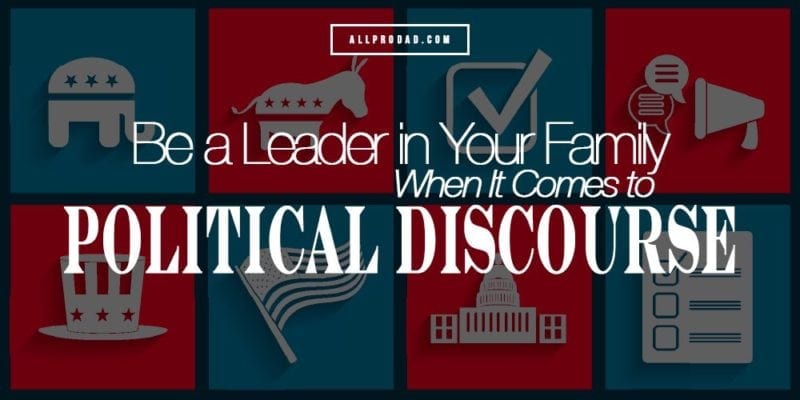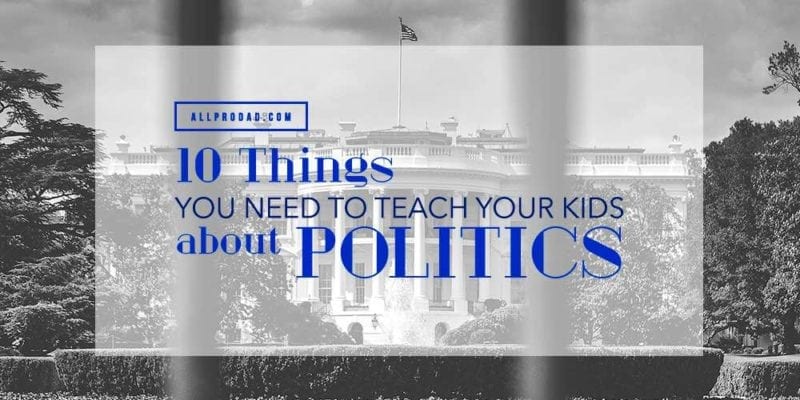Nothing can raise the temperature in the room as quickly as attempting to have a political conversation. While it’s easy to feel like we are in a uniquely angry era, the fact is that anger and politics have always gone hand in hand. Alexander Hamilton was shot by his political rival, Aaron Burr. Numerous presidents have been assassinated. An anti-slavery congressman was famously beaten unconscious by a pro-slavery representative. I could go on. Politics has always been a source of deep-seated emotions.
However, anger isn’t inevitable. As dads, we need to set the right example for our kids. We are not destined to resort to schoolyard antics when it comes to political disagreements. It is possible to have a political discussion without resorting to name-calling, shouting, or physical violence. In fact, you even can have a political discussion constructively. Here are 3 ways to do it.
1. Seek to understand.
One of the biggest problems in a political discussion is the assumptions we make. We believe we know what our opponents think about whatever issue we’re discussing. We already have our arguments ready and are prepared for the talking points we know they have. Of course, the problem then is that we’re not really having a conversation. We’re just trying to make a point.
Instead, we should try to understand the other person by asking honest questions about what they believe and why. As a result, we’ll be much more likely to engage in a dialogue through which we actually learn something about the person we’re speaking with. And, who knows? We may even learn something about ourselves.
2. Assume intelligence.
It’s easy to assume that people who disagree with us are just dumb. We know the thought process that led us to our beliefs and we assume others simply aren’t able to connect the dots like we are. The truth is, they probably thought through the issue pretty thoroughly. They just came to a different conclusion.
If we engage with other people assuming they are just as intelligent and thoughtful as we are, we are much more likely to speak respectfully to them. This, in turn, will encourage them to speak respectfully as well.
3. Know that your information will not change them.
People don’t change their political views because you yell really loudly at them. I know, it’s shocking. They also don’t change because they receive new information. They have access to all the information they possibly could want simply by Googling. It is unlikely you will tell them something they haven’t heard already. However, even if you do, it’s still unlikely your new information will change them. That’s not how we work.
If you want to influence someone, don’t argue with them. Befriend them.If you want to influence someone, don’t argue with them. Befriend them. Of course, it’s playing the long game. However, it’s far more effective when it comes to making an impact. Not to mention, people with differing perspectives having constructive conversations and disagreeing with mutual respect is kind of a cornerstone of a democratic society.
Political conversations, if done well, don’t have to lead to violence (in word or deed). In fact, they just might lead to friendship.
Sound off: What advice would you give to someone who wants to have a civil political conversation with someone with whom they disagree?











Huddle up with a friend who has a different political perspective and ask, “Which of your values shape your political perspective?”